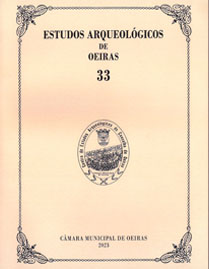Remontagens de um conjunto de núcleos de sílex do Neolítico Antigo do povoado da Encosta de Sant’Ana (Lisboa)
DOI: https://doi.org/10.5281/zenodo.10402456
Palavras-chave:
Encosta de Sant'Ana, Lisbon, Early Neolithic, Lithic reassemblyResumo
A lithic assemblage is studied, composed of dozens of flint flakes recovered “in situ”, accumulated in a small pit excavated in the sandy soil and associated with a fire structure,of the Early Neolithic occupation of the site, dated to the transition from the 6th to the 5th millennium BC.
When subjecting the recovered lithic assemblage to the reassembly method, it was found that it included several primary blocks, from which the chips were obtained, soon afterwards stored in the place where they were found. The blocks show exposure to fire of varying intensity, sometimes very strong, revealing the pre-heat treatment technique present in the region in other sites from the same period, indicating the existence of a specialized functional area in the domestic space.
Due to the petrographic nature of the flint, along with the morphological characteristics of the flakes and reassembled blocks, an attempt was made to identify the origin of the raw material and recognize the preparation technique adopted. It was the first time that in Portugal, for a post-Paleolithic chronology it was possible to achieve this objective, supported by the exceptional nature of the find.
Downloads
Publicado
Como Citar
Edição
Secção
Licença
Os artigos publicados são da exclusiva responsabilidade dos Autores.
É expressamente proibida a reprodução de quaisquer imagens sobre as quais
existam direitos de autor sem o prévio consentimento dos signatários dos artigos
respectivos.




